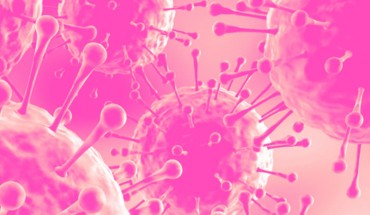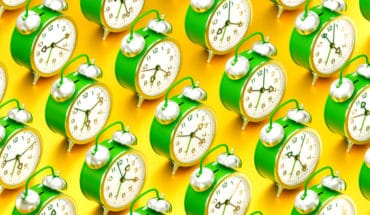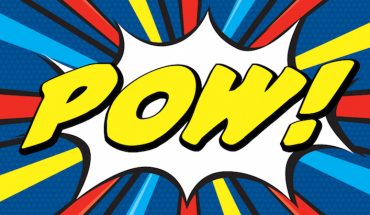Psychedelic experiences linked with improved sexual function: Magic mushrooms, LSD and other psychoactive compounds may help to improve sexual function for months after the psychedelic experience.
These are the findings of the first known scientific investigation into the effects of psychedelics on sex, which finds participants reported improvements across a range of measures for several weeks after an acute psychedelic experience.
In the study, published today in the journal Nature Scientific Reports, researchers from the Centre for Psychedelic Research at Imperial College London gathered questionnaire responses from almost 300 people before and after a psychedelic experience. By combining responses from two groups – people taking psychedelics for recreational or wellness/ceremonial purposes, as well as a small group from a clinical trial assessing psylocibin (the compound found in magic mushrooms) for depression – they were able to investigate how the experience influenced a range of aspects relating to sexual functioning.
The analysis reveals that on average, people reported improvements across a range of areas of sexual function up to six months after their psychedelic experience, including their enjoyment of sex, sexual arousal, satisfaction with sex, attraction to partner, their own physical appearance, communication, and their sense of connection.
In addition, among the small group taking psilocybin on the clinical trial for depression, they found that almost half of participants reported improvements in sexual arousal, interest and satisfaction with sex, while people treated with a leading antidepressant mostly reported decreases in sexual functioning.
According to the team, the findings open the possibility for applications in a range of therapeutic settings – such as couples therapy.
They also highlight further potential benefit in the treatment of depression, where psychedelic compounds such as psilocybin could potentially help to avoid drug-induced sexual dysfunction – one of the biggest side effects with current gold standard antidepressants.
Tommaso Barba, first author of the study and PhD student based at the Centre for Psychedelic Research at Imperial College London, said: “We believe this is the first scientific study to explore the effects of psychedelics on sexual functioning. Our findings suggest potential implications for conditions that negatively affect sexual health, including clinical depression and anxiety. This is particularly significant given that sexual dysfunction, often induced by antidepressants, frequently results in people stopping these medications and subsequently relapsing.
“On the surface, this type of research may seem ‘quirky’, but the psychological aspects of sexual function – including how we think about our own bodies, our attraction to our partners, and our ability to connect to people intimately – are all important to psychological wellbeing in sexually active adults. Sexuality is a fundamental human drive. For example, we know that sexual dysfunction is linked to lower well-being in healthy adults, can impact relationship satisfaction, and is even linked to subjective happiness and ‘meaning in life’.”
Bruna Giribaldi, senior author on the paper and formerly based at the Centre for Psychedelic Research at Imperial, said: “So far, all the research on depression has only focused on whether treatments cause sexual dysfunction. We wanted to make sure we went deeper than that and explored more aspects of sexuality that could be impacted by these treatments. We were interested in finding out whether psychedelics could influence people’s experiences of sexuality in a positive way, as it appeared from existing anecdotal evidence.
“Sexual side effects are often underreported in clinical trials, as people tend to not directly report them unless explicitly asked. Aware of this, we were determined to thoroughly investigate this area.”
In the analysis, researchers combined responses to questionnaires from two studies,[1] with participants providing responses before a psychedelic experience, and then at four weeks and six months after.
In the first of the two studies, researchers recruited people already planning to take psychedelics in the near future, either for recreation or as part of a psychedelic ceremony. Participants provided responses to the online survey before taking substances (including psilocybin/magic mushrooms/truffles, ayahuasca, DMT, San Pedro, and LSD) and twice after the experience.
A total of 261 people were included in the analysis,[2] and response showed that overall, they were more likely to report improvements across all areas of sexual functions for up to 6 months after their psychedelic experience. The most significant improvements were in sexual pleasure, satisfaction with their own appearance, satisfaction and communication with their partner, as well as perceiving sex as a ‘spiritual experience’.
The second study, led by the former director of the Center, Professor Robin Carhart-Harris, looked at 59 people taking part in a clinical trial to assess psilocybin for treating major depressive disorder – with 30 people given psilocybin, and 29 taking the antidepressant escitalopram (a type of SSRI). Participants on the psilocybin arm were more likely to report improvements across all areas of sexual function at the end of the trial, with the most significant improvements reported in sexual arousal, interest, satisfaction and communication with their partner.
Patients treated with escitalopram tended to report decreases. An exception was satisfaction with their appearance, which improved in both arms. Levels of reported sexual dysfunction were also significantly lower for the psilocybin group (13 % reporting sexual dysfunction at the end of the trial) compared to those in the citalopram group (59% reporting dysfunction).
The authors note that, overall, neither study found a significant change in participants’ perceived importance of sex after a psychedelic experience. This indicates that psychedelics don’t cause an excessive focus on sex or “hyper-arousal.” Instead, they may transform how individuals perceive and relate to sexual experiences, which could lead to an improvement in sexual well-being.
The authors highlight a number of limitations to the study, including the questionnaire-based nature of the data. They also highlight that participants were predominantly white, heterosexual, employed and well-educated, which limits how generalizable the findings are across populations.
The authors caution that while these findings are encouraging, previous trials assessing psilocybin for depression took place under controlled, clinical conditions, using a regulated dose formulated in a laboratory, and involved extensive psychological support before, during and after dosing, provided by mental health professionals. Patients with depression should not attempt to self-medicate with psychedelics, as taking substances in the absence of these careful safeguards may not have a positive outcome.
Tommaso Barba, added: “It’s important to stress our work does not focus on what happens to sexual functioning while people are on psychedelics, and we are not talking about perceived ‘sexual performance’, but it does indicate there may be a lasting positive impact on sexual functioning after their psychedelic experience, which could potentially have impacts on psychological wellbeing.”
Dr David Erritzoe, Clinical Director of the Centre for Psychedelic Research, said: “This study shines yet more light on the far-reaching effects of psychedelics on an array of psychological functioning. While the findings are indeed interesting, we are still far from a clear clinical application, because psychedelics are yet to be integrated into the medical system. In future, we may be able to see a clinical application, but more research is needed.”
The clinical trial was supported by funding from the Alexander Mosley Charitable Trust and by the founding partners of Imperial College London’s Centre for Psychedelic Research.
‘Psychedelics and sexual functioning: a mixed-methods study’ by Tommaso Barba, Hannes Kettner, Caterina Radu, et al. is published in Scientific Reports. DOI: https://doi.org/10.1038/s41598-023-49817-4 1
This press release uses a labelling system developed by the Academy of Medical Sciences to improve the communication of evidence. For more information, please see: http://www.sciencemediacentre.org/wp-content/uploads/2018/01/AMS-press-release-labelling-system-GUIDANCE.pdf.
[1] Questions included: During the past month, have you felt pleasure from any forms of sexual experience? During the past month, how frequently have you been able to communicate your sexual desires or preferences to your partner/s? Overall, how satisfied have you been with your sexual relationship with your partner/s? Overall, how important is sexual activity in your life? How satisfied you are with the overall appearance of your body?
[2] Demographics of the naturalistic study of 261 participants showed the average participant was likely to be a white, heterosexual male from the US or UK, who was single and educated to degree level or higher, and in full time employment, who had used psilocybin mushrooms.
- New lipid-based pathway discovered as key to memory formation - 25th June 2025
- Crucial link could explain how Alzheimer’s takes hold - 25th June 2025
- Understanding Your Mind Can Improve Daily Life - 25th June 2025






